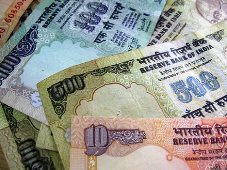 With a rising proportion of non-performing assets in education loans, banks have approached the government, seeking protection in the form of a credit guarantee fund of at least Rs 2,500 crore (Rs 25 billion).
With a rising proportion of non-performing assets in education loans, banks have approached the government, seeking protection in the form of a credit guarantee fund of at least Rs 2,500 crore (Rs 25 billion).
According to estimates given by bankers to the Union finance ministry, non-performing assets had risen above two per cent of the educational loan portfolio, as on March 31, from an insignificant figure before 2004-05, when a set of more liberal rules gave such loans a boost.
By way of comparison, Reserve Bank of India data showed the ratio of net NPAs of commercial banks to net advances rose only marginally to 1.1 per cent as at end-March 2009, from 1 per cent as at end March 2008, while gross NPAs to gross advances remained constant at 2.3 per cent.
In the educational loan scheme, it is possible to borrow up to Rs 10 lakhs (Rs 1 million) for domestic education and Rs 20 lakhs (Rs 2 million) for studying in foreign colleges.
Borrowers need not pay during the tenure of the course plus one year after. The repayment period is five to seven years.
In addition, for loans up to Rs 400,000, banks cannot ask for any collateral. This particular clause is thought by bankers to have made loans more prone to turn sour.
The finance ministry has also taken note of the fact that more study loans are going bad.
According to a ministry official, around 40 per cent of the NPAs in education loans are from the four southern states, which have the highest number of private colleges and universities, mostly offering professional courses.
State Bank of India is the largest in the segment, with around 25 per cent of the market. It had Rs 8,900 crore (Rs 89 billion) of such loans on March 31, a growth of 35 per cent over the previous year.
Banks have requested the government to create a credit guarantee fund for educational loans, on the lines of the Credit Guarantee Fund Trust for Micro and Small Enterprises jointly set up by the government and Small Industries Development Bank of India.
The fund, in which 80 per cent was contributed by the government and the rest by Sidbi, provides credit guarantees to banks and other financial institutions for facilitating collateral free lending to medium and small enterprises.
CGTMSE, which provides credit guarantee support to collateral-free loans up to Rs 1 crore (Rs 10 million) extended by banks and lending institutions for micro and small enterprises, also provides guarantee cover of 85 per cent for loans up to Rs 500,000 to micro enterprises and 75 per cent for other loans.







 © 2025
© 2025